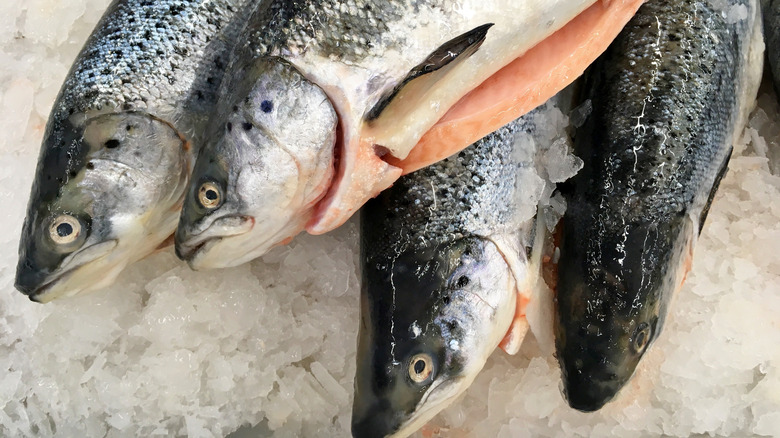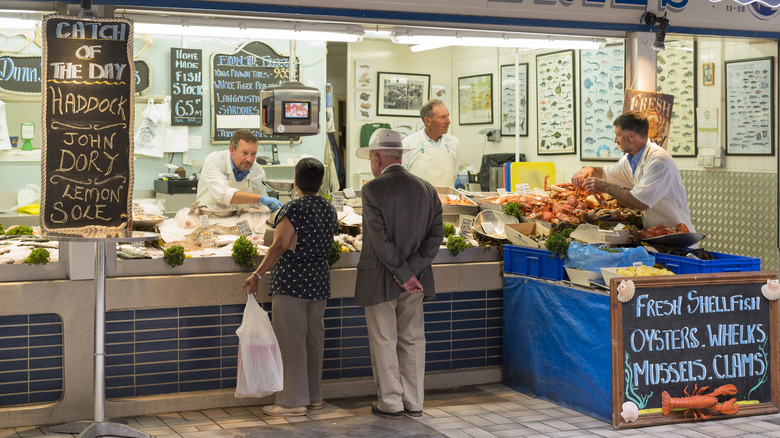Why You Should Think Twice Before Buying Seafood At The Grocery Store
Eating fish offers a bonanza of health benefits. The long-chain omega-3 fats, vitamin D, selenium, and protein found in seafood all contribute to heart health in such a way that eating only 6 ounces of fatty fish a week can lower the risk of dying from heart disease by 36% (via Harvard School of Public Health).
According to Sustainable Fisheries, Americans consume around 5 ounces of fish weekly, well below the 8 ounces in the U.S. Dietary Guidelines. This impacts not only our health but also the fish you find at the local supermarket. As Mark's Daily Apple points out, because Americans aren't big seafood eaters, the turnover at the fish counter at your local grocery store is pretty slow. Fresh fish has a short shelf life, and the longer it languishes in the case, the more likely it has gone funky.
Local Seafood also notes independently owned fish markets have a shorter supply chain than large-scale stores, often buying directly from the boat or a nearby processing facility. The shorter supply chain means not only fresher fish but also a financial boon to the community. It's likely the fresh fish caught in local waters is by a boat local to the area. In turn, they are selling their catch to a local small business. So every dollar you spend in the independently owned store ends up cycling back into the community, ultimately making it more financially healthy.
Buy seafood from your local fishmonger
According to Locals Seafood, the stock at the local fish market is likely larger and more varied since grocery store chains only carry what readily sells (think mild white fish, tuna, and salmon). The resident fishmonger works with the fishing fleets when they catch more unusual species, which is happening more frequently as fish from other climates migrate with the changing sea temperatures (via The Public's Radio). Locals Seafood points out that these smaller fish markets can offer recipes and other tips on cooking the unusual catch.
Esquire offers some advice for purchasing the freshest fish, whether you are at your independent fish market or a larger grocery store. Whole fish with the heads left on should have bright eyes; cloudy ones are a sure sign the catch is old. Give the fish a good whiff; if you smell even a hint of ammonia, don't buy it. The website also points out that lobsters and crabs must be alive at purchase, and the shells of clams, oysters, and mussels should be firmly closed.
Fishmonger Mark Fromm, from the beloved grocery chain Wegmans, which Progressive Grocer notes is committed to sustainable fish practices, also suggests asking when a fish was filleted rather than caught (via The Kitchn). Whole fish stays fresher than one that's been cut into pieces; the best stores fillet their fish in-house.

